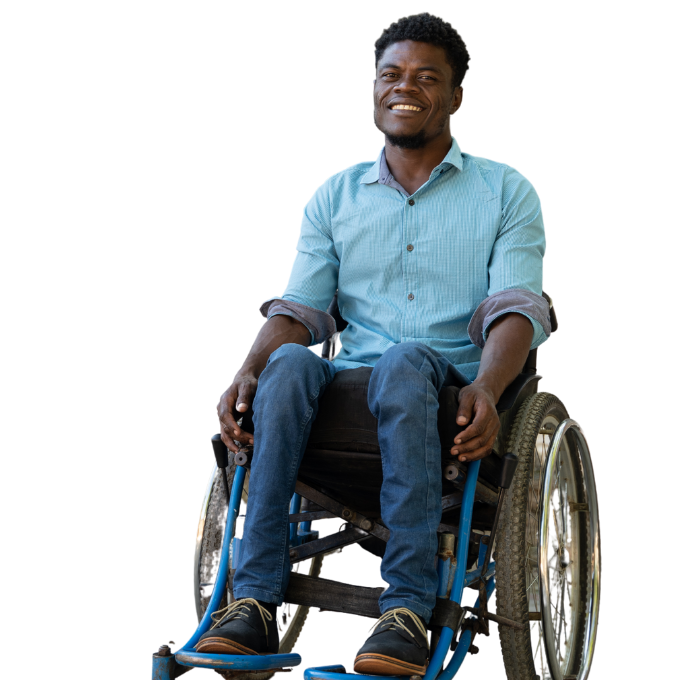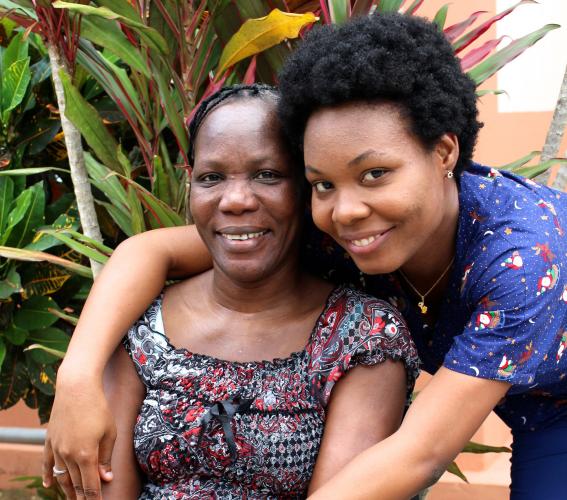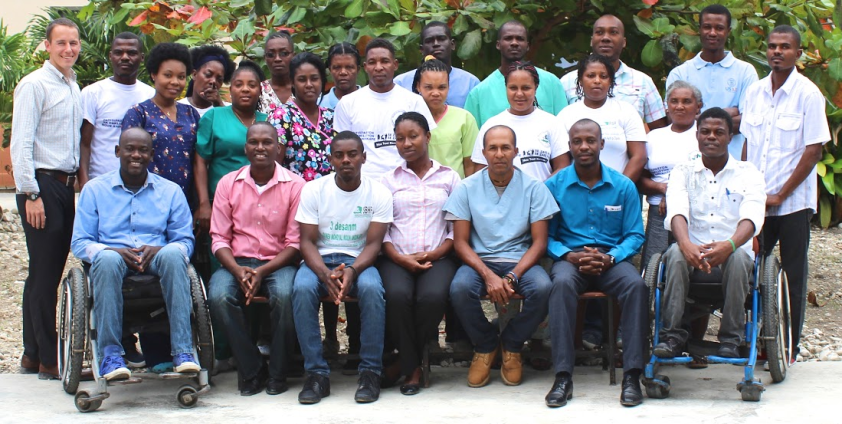“My favorite thing about my job is helping people realize their autonomy—just like I have.”
Your donation will help Maxsony provide critical support for patients with spinal cord injuries.


To celebrate World Physical Therapy Day we talked to SBH’s lead physical therapist, Sophia Laine.
“When I was 12 years old I had a friend in school with bent legs who had a hard time walking. Nobody wanted to play with her and I was her only friend. I told my mom that I wanted to be a doctor to help people with disabilities like my friend. I know now, after my education, that she had polio. I have tried to find her, but have not been able to yet.”
Sophia never gave up on her childhood ambition and, at the age of 20, applied for medical school in the Dominican Republic, where there were more options for an aspiring student.
“When I got there, the school told us about the different paths we could take in medicine. We could become doctors, dentists, or physical therapists. I had never heard of physical therapy before, so I researched it and found out that physical therapy is exactly what I wanted to do ever since I decided to help people like my friend.”
At the time Sophia could not speak Spanish, so her four-year degree became a five-year degree to allow for language learning. She paid for everything herself and after finishing school spent another year working in the Dominican Republic.
“A friend who worked at Handicap International contacted me and told me about SBH and that they needed a physical therapist. I applied, and they replied back in just three days. I found out afterward that they had been searching for a therapist for eight months. At that point, there were only about 25 physical therapists in all of Haiti.”
HEI/SBH’s Spinal Cord Injury Program, financed by USAID, started as a result of the catastrophic 2010 earthquake, receiving its first patients in February 2010. It has now grown to serve over 100 active patients throughout the country.
Kevin Melanson, director of the SCI program, is grateful. “We are truly fortunate to have Sophia working at St. Boniface. Physical therapy is still a relatively new profession in Haiti and having a skilled, knowledgeable, and experienced physical therapist to lead our rehabilitation efforts and provide high-quality care to persons with spinal injuries and other members of our community needing therapy is a great asset to St. Boniface and our patients.”

The SCI Program staff at SBH, including Sophia Laine (2nd row, left) and Kevin Melanson, Program Director (far left).
One patient in particular had had a profound impact on Sophia. A young man, 25 years old, was paralyzed in a motorcycle accident and for months couldn’t move his body from the neck down. His bedsores had progressed into a pernicious bone infection. Sophia worked with the patient and his nurses to heal his wounds and ensure that he changed positions every two hours to avoid sores. His chances to recover sensation and movement were positive, and Sophia sat with him each day working on simple fine motor skills—slowly tapping his thumb to the tip of his pointer finger, middle finger, ring, and pinky.
“He thought he would never regain control. But one day, while practicing pressing the buttons on my cell phone, he dialed a number. And after that, he never stopped calling me! He is with his family now but still calls me to talk about his life.”
Although Haiti suffers from an extreme lack of physical therapists, Sophia is optimistic about the future.
“Physical therapy is growing in Haiti. The first school of physical therapy opened in 2014 and will have its first graduates in the next couple of years. And we have a society now—La Société Haïtienne de Physiothérapie. We are letting [injured] people know that they will have a life after their accident, a new life. Our job is to train people to have the physical strength to look after themselves and the emotional strength to know that being in a wheelchair doesn’t mean their life is over.”
Thank you for your hard work, Sophia, and happy Physical Therapy Day to all PTs around the world!
Your donation will help Maxsony provide critical support for patients with spinal cord injuries.
